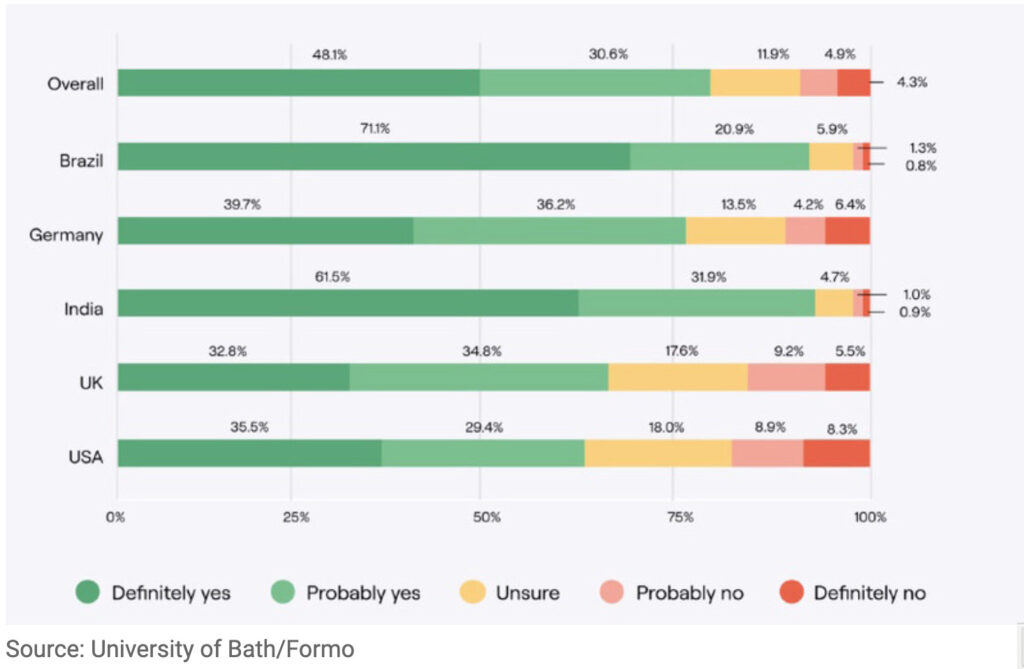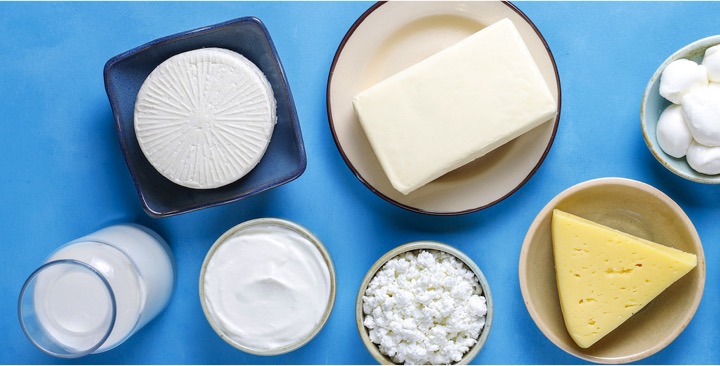Researchers from University of Bath and German start-up Formo conducted a consumer study in five countries showing high acceptance for animal-free cheese produced by precision fermentation. Market potential could exceed the shares of plant-based alternatives, the authors say.
German food tech startup Formo and the University of Bath, UK, have announced the results of the world’s first international study on animal-free acceptance of Dairy products in which 5,054 people from Brazil, Germany, India, UK and US have been asked towards their general acceptance as well as their relative perception of animal-free cheese compared to plant-based alternatives and conventional cheese products.

Published in Frontiers in Sustainable Food Systems the study results show a positive majority for alternative cheese products produced with precision fermentation. Another finding: 79% of consumers are willing to try animal-free cheese and 71% showed their willingness to buy these products. “Building on the relevant success of plant-based milk alternatives, we are now seeing the next generation of cheese and dairy products,” says Christopher Bryant, one of the study authors at University of Bath. “The consumer acceptance is largely driven by the growing groups of flexitarians and cheese lovers. We see a strong indicator that the openness to animal-free cheese products far exceeds the niche market of plant-based alternatives.” Experts tax the mass cheese market to reach $240 billion.
According to the study, consumers are also expecting taste improvements to come along with the precision fermentation manufacturing methods. At the same time, they appreciate the ethical and ecological benefits of the animal-free cheese products. “The results of our survey confirm that plant-based alternatives cannot keep up with the taste, texture and functionality of animal cheese products, and therefore do not find widespread acceptance. At the same time, consumers are aware that animal products are bad for the environment,” says Oscar Zollman Thomas, business analyst at Formo, who was responsible for the study in the Berlin-based company. “Precision fermentation, on the other hand, enables production to be more hedonistic and simultaneously sustainable.”
According to Formo co-founder Raffael Wohlgensinger, the market is now ready for animal-free cheese and precision fermentation products. However he still sees a lack of regulatory initiatives and funding to actively advance this field. “If no action is taken we believe that the investment gap towards US and Asia is widening and that the FoodTech hubs for this area will be established outside the EU.”
Formo is using precision fermentation to insert a copied stretch of cow DNA into microorganisms so that they are producing real milk without animal cruelty. By combining these milk proteins with plant-based fats, the company aims to obtain dairy products that behave like animal milk does, but that does contain no cholesterol. With industrial animal agriculture responsible for 18% of all greenhouse gas emissions, keeping animals out of dairy production would be more efficient and beneficial, the company argues. The start-up is aiming to launch commercially cultivated products by 2023. “Currently we focus on a small selection of high-quality European cheese, from fresh cheeses such as ricotta to aged and ripened variations. With our process, we will be able to create cheeses that are indistinguishable from the original,” CSO and co-founder Britta Winterberg said in late April. At that time, the company launched its new branding as Formo. Originally, the company was founded in 2019 as Legendairy Foods. According to Wohlgesinger, the launch of a “protectable consumer brand” was initiated because the company now has entered the phase of having first validated prototypes.
Currently, the company also thinks about possible labels for the new products. “We are working on establishing a consistent nomenclature for precision-fermentation products. Our goal is to make our process as transparent as possible for consumers, and consistent terminology is the first step towards achieving this goal”, explained Wohlgesinger in an interview recently published with organization Proveg. Among the challenges that are ahead is regulatory approval, he also admitted. “In the best-case scenario, the approval process in the EU takes at least 18 months. We are confident that our products will be approved. However, the uncertainty of this process and the lengthy duration poses some challenges in terms of planning.”
Globally, also other companies are tapping into precision fermentation in order to produce a variety of dairy products. Perfect Day in the US, ReMilk and BioMilk in Israel, Those Vegan Cowboys in Belgium, and Better Dairy in the UK are all developing a new generation of cultured dairy products.
Source : European Biotechnology June 24th 2023

